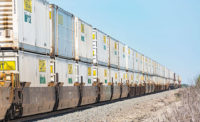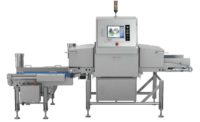The pandemic exacerbated the already strained food supply chain, making it a global issue. Other disruptions have included labor shortages, container shortages and increased costs caused by inflationary pressures. Challenges such as insufficient labor to staff processing and packing plants and trucking carriers have combined to increase issues faced by shippers within the food and beverage industry, making it critical for them to take steps to mitigate food logistics risks. Here are some of the ways that shippers are dealing with the challenges they face in food logistics.
Diversifying carriers
Transportation carriers have been dealing with driver shortages for years, and the problem is expected to continue. While the American Trucking Association reported the shortage of truck drivers improved slightly over 2021 to 78,000 open positions, it also projects that the shortage could exceed 160,000 drivers by 2031.
The truck driver shortage poses a real risk to shippers responsible for ensuring their food products reach their destinations on time and in a safe condition, especially within the cold chain. As a result, many shippers have diversified their carrier bases by working with freight brokers. Since a freight broker must obtain a license from the Federal Motor Carrier Safety Administration (FMCSA) and either post a $75,000 freight broker surety bond or open a $75,000 BMC-85 trust, shippers can rely on them for help with finding carriers to transport their shipments on time.
Data analysis, capture and monitoring
Shippers are also turning to firms that offer data analysis and capture services to optimize food logistics processes, increase the security of their cargo and monitor the quality and condition of food cargo in real time. Analyzing multiple data streams to capture data about processes, cycles and trends can help shippers quickly identify and prevent potential problems that could arise.
Shippers can use the data to monitor and analyze shipping data from end to end, which can help to increase the scalability and reliability of food supply chains. Food logistics data can be evaluated using predictive algorithms to identify potential issues and save resources, time, money and labor.
Cost and payment tracking
Tracking freight costs and payments in real time also allows shippers to make modifications as needed to avoid losses during shipments. Shippers are relying on help from third parties that offer this service or software to handle scheduling while providing data to ensure cold food goods are delivered on time.
Implementing new fulfillment models
Traditional fulfillment models don't always work in the midst of uncertain market conditions. As a result, more shippers are turning to alternative fulfillment models, including flexible warehousing, micro-fulfilment and omnichannel fulfillment options. Implementing these alternative models can help shippers to reduce food logistics risks they could otherwise face.
Changing import locations
Shippers might face increased costs when they change import locations, but doing so can sometimes prevent total losses caused by spoilage when import locations are backed up. Diversifying import locations might help to prevent substantial losses shippers might otherwise face.
For example, some shipments were redirected to border entry points in Arizona in April in response to the bottleneck created by Texas's additional inspections. While the 1,200-mile detour added costs, carriers that were able to change their import locations avoided being among the shippers who suffered an estimated $240 million in losses caused by food spoilage.
Leveraging local deliveries and zone-skipping
Some shippers are leveraging zone-skipping, last-mile deliveries and local deliveries to streamline their deliveries. Shippers who avoid shipping food across multiple zones by using less-than-truckload (LTL) shipments can reduce costs and losses. Multi-modal transport might also be helpful for shippers who regularly ship large quantities of cold food cargo.
Ensuring carriers and brokers comply with FSMA
Rules under the Food Safety Modernization Act (FSMA) have placed new duties on shippers, brokers and carriers to ensure the safety of the foods they handle. Shippers must understand their responsibilities under these regulations and ensure the carriers they work with comply with the transportation rules for cold foods. During loading and unloading, they should ensure the carriers have the correct transportation equipment, verify the foods are kept at the correct temperatures and ensure the cargo is loaded properly so that raw and prepared foods are not mixed.
Food logistics issues should be expected to continue for the foreseeable future, making it critical for shippers to take steps to manage their risks. By harnessing technology and making modifications to how they handle their shipments, shippers in the food and beverage industry might combat costs and protect their profit margins.
Robin Kix is renewal department manager for Lance Surety. Since joining Lance Surety in 2014, she has helped thousands of businesses throughout the nation remain compliant at the federal, state and local level.




Report Abusive Comment